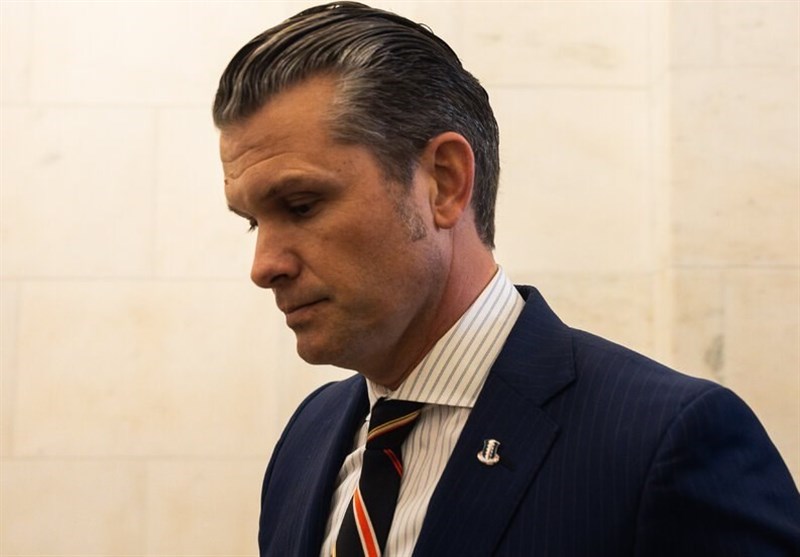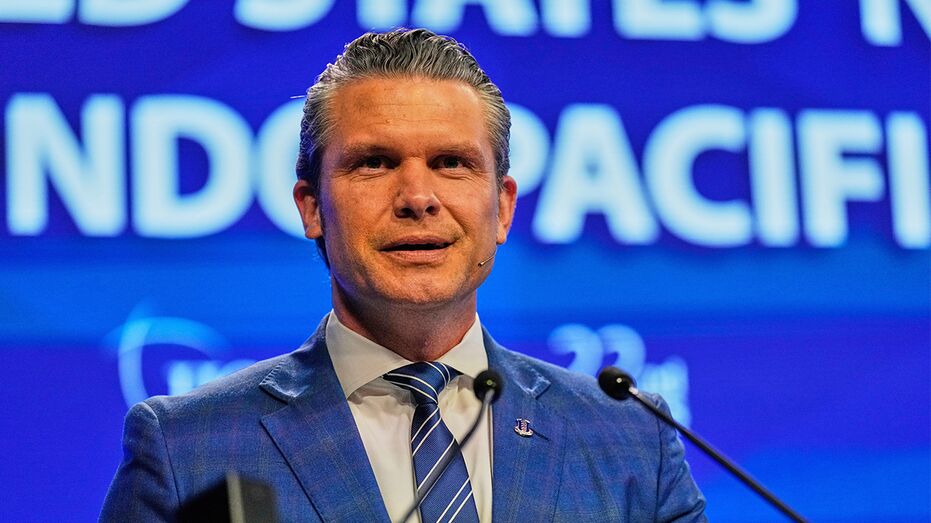
China Condemns U.S. Remarks at Shangri-La Dialogue
China has issued a strong condemnation of remarks made by U.S. Defense Secretary Pete Hegseth, labeling them as “filled with provocations.” The Chinese Foreign Ministry accused Hegseth of unjustly portraying China as a threat within the Indo-Pacific region during his speech at the Shangri-La Dialogue security conference held in Singapore on Saturday.
Accusations of Cold War Mentality
A spokesperson for the Chinese Foreign Ministry stated that Hegseth’s commentary exhibited a “Cold War mentality,” which they believe undermines calls for peace in the region. Instead of fostering dialogue, Hegseth’s remarks were characterized as promoting “bloc confrontation.” China took issue with his description of their country as a “threat,” labelling the comments as not only provocative but also divisive.
China’s View on U.S. Hegemony
In its official response, China expressed its firm opposition to Hegseth’s statements and protested to the U.S. government. The notion of hegemonic power was highlighted, with China asserting that the United States represents a more destabilizing force in the Asia-Pacific than any other nation. The Chinese Foreign Ministry’s rhetoric reflected a deep-seated frustration over what they perceive as the U.S. mischaracterization of China’s intentions and actions in the region.
U.S. Defense Enhancements
During the Shangri-La Dialogue, Hegseth outlined plans for the United States to bolster its overseas defenses in response to what he deemed China’s growing threats. A key focus of his remarks was the specific military rehearsals that China has been conducting in connection with Taiwan. Hegseth warned that these preparations signal a real and possibly imminent threat of military action concerning Taiwan, which he claimed China is actively training to potentially takeover.
The Taiwan Issue
In light of these remarks, the Chinese Foreign Ministry reiterated its position that Taiwan is a domestic matter and issued a stern warning to the U.S. regarding interference. China urged the United States to respect the one-China principle and cease supporting what they referenced as “Taiwan independence” separatist forces. This statement reaffirms China’s commitment to its longstanding policy regarding Taiwan, viewing any external support for Taiwanese independence as a significant provocation.
Allegations of U.S. Military Action
China’s accusations against the U.S. extended to claims of deploying offensive weapons in the South China Sea, which Beijing argues exacerbates regional tensions. The Chinese Foreign Ministry insisted that there have been no issues regarding freedom of navigation in the South China Sea and criticized the U.S. for what they describe as destabilizing actions. China called for a more respectful attitude towards regional peace efforts, highlighting the importance of stability in maintaining order in the Asia-Pacific region.
Provocative Remarks Impact on Relations
Chinese Defense Ministry spokesperson Zhang Xiaogang characterized Hegseth’s comments as a distortion of China’s policies and as provocation that could further strain U.S.-China relations. The continued exchange of harsh words between leaders in both nations comes amid evolving geopolitical dynamics in the Asia-Pacific region where both countries aim to assert their influence.
Calls for Indo-Pacific Defense Investments
Despite ongoing tensions, Hegseth emphasized the importance of strengthening alliances and urged Indo-Pacific nations to invest more in their own defense capabilities. He highlighted the need for constructive discussions among partners about regional security and stability. This appeal underscores the broader U.S. strategy of fostering stronger partnerships in the context of growing Chinese assertiveness.
Trade Relations and Past Agreements
This diplomatic tension between the U.S. and China is compounded by issues surrounding trade relations. Previously, a U.S.-China agreement aimed to cut tariffs was reached, although it experienced complications when President Trump accused China of breaching terms of the agreement. This led to a commitment from Trumps for a tougher trade stance against China, suggesting that economic relations will continue to be a contentious aspect alongside military and diplomatic tensions.
Conclusion
The remarks made by U.S. Defense Secretary Pete Hegseth at the Shangri-La Dialogue have sparked a significant diplomatic backlash from China. As both nations navigate a complex relationship fraught with challenges ranging from military tensions to trade disputes, the potential for exacerbated confrontations remains high. Moving forward, it will be critical for both sides to address these issues through diplomacy to foster a more stable and peaceful regional environment in the Indo-Pacific.
















